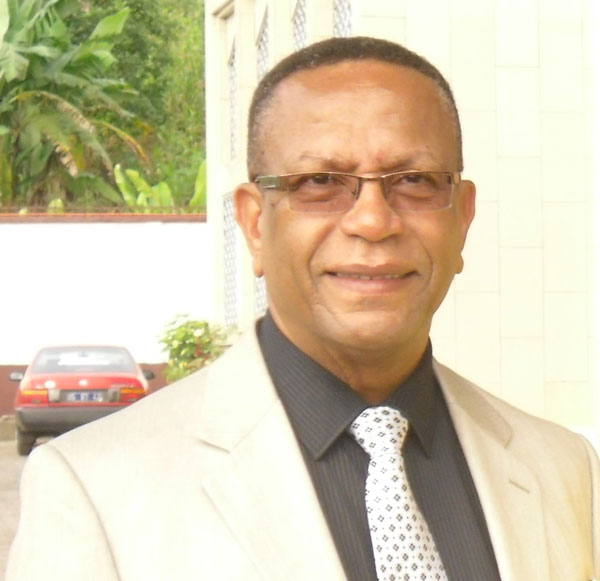 I would like to commend Member of Parliament, the Honorable Ardwell Irion, for presenting a proposal to Parliament that would make MPs more accountable and transparent, particularly towards their voters and the public in general. In the next Annual Parliamentary Report, we should be able to see how each MP voted on a law or a motion.
I would like to commend Member of Parliament, the Honorable Ardwell Irion, for presenting a proposal to Parliament that would make MPs more accountable and transparent, particularly towards their voters and the public in general. In the next Annual Parliamentary Report, we should be able to see how each MP voted on a law or a motion.
I also concur with MP Irion that Parliament’s website also needs upgrading. In March of this year, I submitted a letter to the President of Parliament, the Honorable Sarah Wescot-Williams, with several suggestions as to how to make Parliament’s website more informative and user-friendly. I am pleased that the President of Parliament took my letter and the suggestions seriously. She has informed me by letter that the upgrading of the website is a priority for the Presidium of Parliament and that my suggestions will also be given consideration. Thank you, Madame President! I am looking forward to being able to make use of the upgraded website in the very near future.
Besides MP Irion, the President of Parliament is the only other member, in the current Parliament, who has presented proposals to improve the integrity, transparency, and accountability of Parliament. She has proposed to have parliamentarians disclose all of their functions, and not just only their government related functions. This means that parliamentarians would have to disclose their companies, their businesses, and their part-time or side-jobs. According to the President of Parliament, such disclosure of functions should eventually lead to parliamentarians also having to disclose their finances at the beginning of their term of office. These proposals have not been welcomed with enthusiastic cheers from several other parliamentarians but instead have been stalled by the posing of questions, the postponement of meetings and the regular procrastination tactics. When former MP, Cornelius de Weever chaired the very first meeting of the Ad Hoc Integrity Committee of Parliament in March 2015 all parliamentarians agreed that establishing a Code of Conduct was a major priority for the Committee. Sadly, some two and half years later, the Committee has not yet been able to come up with a draft Code of Conduct for Parliament. I guess the concept of “priority” has a different meaning in parliamentary circles.
If Parliament were to set the example and the tone concerning integrity, I am sure that it would be able to demand a higher standard of integrity from government, the civil service and even from the community at large. But, people know that the work ethics of our parliamentarians leave much to be desired. Regularly, parliamentarians do not show up to meetings. Often there is no quorum, which then results in having to reschedule the meeting. Do Parliamentarians consider the guilders wasted due to the cancellation of a meeting? People also see through the grandstanding that many parliamentarians have only skimmed the documents and have not prepared themselves properly for the meeting.
In carrying out its two core functions, namely initiating laws and supervising government, our parliament has certainly been found wanting. Since 2010, not one law, initiated by Parliament, has been passed. Other than meetings called to give government a vote of non-confidence, Parliament hardly calls the government or a minister to give an account regarding a certain decision taken or action executed.
When Parliament accepts that one of its members does not attend parliamentary meetings for months without a valid reason, but still gets paid, this is also sending a message of approval to all the ghost civil servants that it is okay to stay at home and still collect a salary. Unfortunately, our Constitution permits a parliamentarian to stay, uninterruptedly, outside the country for eight months. This may be legal, but it is definitely not ethical or moral. When Parliament upholds such a practice then Parliament cannot but condone this practice among the many ghost civil servants who are still collecting their salaries. Neither would Parliament be in a position to question a minister concerning civil servants who are on long leave of absence with pay, pending an investigation. I notice that the constitution of Anguilla has a pretty stiff penalty for absent parliamentarians. A member of the Anguillan House of Assembly who is absent for three consecutive meetings without giving prior notice to the Speaker of the House must vacate his/her seat. If we had such a law or regulation in place, several parliamentarians over the years would have lost their seats.
What about all the reports submitted by the High Councils of State i.e. the Advisory Council, the General Audit Chamber and the Ombudsman? These reports offer Parliament ample information and advice to be able to carry out its supervisory role. Sadly, Parliament has never used them. We also note that over the years, Parliament has given government many instructions via the numerous motions that were passed. Yet government has never taken them seriously. This makes Parliament look like an institution with no power at all. We need our Parliament to set the standard regarding integrity and good work ethics. It is time for parliament to start raising the bar!
Wycliffe Smith
Leader of the Sint Maarten Christian Party










